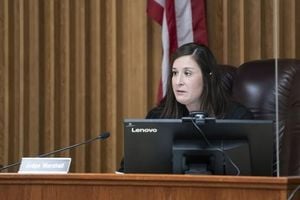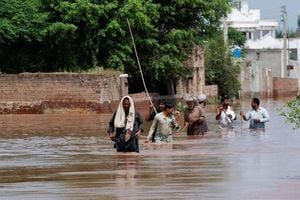Germany experienced a notable rise in unemployment at the start of the year, reaching its highest level since February 2015. According to the Federal Employment Agency (BA), the unemployment rate climbed to 6.4%, with 2.993 million individuals currently out of work. Over the course of December to January, the number of unemployed increased by 11,000 on a seasonally adjusted basis, marking a significant year-on-year rise of 187,000.
This seasonal increase is typical, as many temporary contracts conclude and weather-dependent jobs decline during this time. Yet, the extent of the increase this year points to underlying economic weaknesses, as Germany grapples with broad challenges within its economy, including a manufacturing downturn and productivity crises. "The scale of the seasonal increase can nonetheless be linked to the poor state of Germany’s economy," the BA emphasized.
The latest figures reveal crumbling infrastructure and political instability, exacerbated by excessive regulations, which no doubt contribute to these grim employment statistics. The nation’s GDP, already contracting by 0.3% last year, saw another decline of 0.2% year-on-year by the start of 2025. This recently reported contraction reflects deep and persisting issues within various economic sectors.
Shifting focus to the industrial sector, the Ifo Institute reported alarming trends, noting, "Almost all branches of industry in Germany want to reduce their headcount." These sentiments reflect broader anxieties within the workforce, as many industries prepare to scale back operations amid economic uncertainty.
The timing of these developments casts shadows on the upcoming federal elections, scheduled for February 23, where economic discussions are expected to dominate the agenda. Politicians are mulling over strategies to boost Germany's competitiveness, especially against international players such as China. The urgent conversation surrounding the renewable energy transition will also play a pivotal role as the nation seeks sustainable growth amid its trying economic realities.
Another key topic likely to surface during electoral debates is the 'debt brake,' a fiscal policy mechanism limiting new government borrowing to no more than 0.35% of structural GDP except during emergencies. Lawmakers are expected to face tense discussions on whether relaxing these restrictions is necessary to stimulate recovery or if adhering to them is imperative to maintain long-term fiscal health.
Overall, with economic indicators pointing toward struggle, Germany’s immediate future appears challenging. Political leaders face mounting pressure to address the growing unemployment rate and its connection to broader economic fragility. It remains to be seen how the electorate will respond to candidates’ proposals meant to revitalize job creation and economic growth.
This precarious situation highlights not only the immediate job losses but also the necessity for comprehensive policy interventions capable of addressing long-standing economic shortcomings. With discussions heating up as the election date approaches, it promises to be a defining moment for the country as it navigates through turbulent times.



